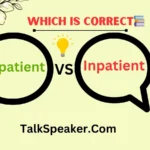Last updated on October 21st, 2024 at 03:46 pm
In conversations, certain phrases gain popularity for their effectiveness in conveying appreciation or agreement. One such phrase is “Well Said.” It’s a common expression used to praise someone for articulating an idea effectively. But is it always appropriate to use “Well Said”?
Let’s dive into its meaning, impact, and appropriate contexts, and explore suitable alternatives to ensure your communication remains both accurate and engaging.
Understanding the Meaning and Impact of “Well Said”
Definition of “Well Said”
The phrase “Well Said” is a form of verbal affirmation. It signifies approval and recognition that the speaker has expressed their thoughts clearly and effectively. Essentially, when you say “Well Said,” you’re acknowledging that the person has articulated their point in a manner that resonates with you.
Example:
- Person A: “I believe that effective communication is key to a successful team.”
- Person B: “Well Said! Clear communication indeed makes all the difference.”
Impact on Conversation
Using “Well Said” can have a significant impact on conversation. It can:
- Reinforce Positivity: It encourages the speaker by validating their contribution.
- Foster Engagement: It creates a supportive environment where ideas are valued.
- Enhance Dialogue: It can smooth over discussions, making them more collaborative.
However, overusing the phrase can make it lose its impact and might even seem insincere. Balance is key.
Appropriate Contexts for Using “Well Said”
Formal vs. Informal Settings
The appropriateness of “Well Said” often depends on the setting. Here’s a breakdown:
- Formal Settings: In professional or academic environments, “Well Said” is typically used to acknowledge thoughtful insights during presentations or discussions. It’s a way to show appreciation for well-articulated points.
- Informal Settings: Among friends or in casual conversations, “Well Said” can be used more liberally to express agreement or admiration for someone’s comments.
Examples:
- Formal: In a business meeting, a manager might say, “Well Said, Sarah. Your analysis of the market trends is thorough and insightful.”
- Informal: During a casual chat, a friend might say, “Well Said! I totally agree with your take on that movie.”
Examples of Suitable Contexts
Workplace Meetings:
When a team member presents a well-thought-out solution to a problem, acknowledging it with “Well Said” can boost morale and encourage further contributions.
Academic Discussions:
In a classroom setting, a teacher or fellow student might use “Well Said” to affirm a point made during a debate or discussion.
Public Speaking:
During a speech or presentation, audience members or fellow speakers might use “Well Said” to show agreement with the speaker’s viewpoint.
Conversational Nuances of “Well Said”
Tone and Delivery
The effectiveness of “Well Said” largely depends on how it’s delivered:
- Positive Tone: A warm, enthusiastic tone conveys genuine appreciation.
- Neutral Tone: A flat or disinterested tone might come across as insincere.
Example:
- Positive Tone: “Well Said! Your point about sustainable practices is incredibly important.”
- Neutral Tone: “Well Said,” said with a lackluster tone, might not have the same positive effect.
Cultural Sensitivity
Different cultures have varying perceptions of affirmation phrases. While “Well Said” is broadly accepted in many English-speaking cultures, its impact may differ:
- In American Culture: It’s commonly used and understood as a positive reinforcement.
- In British Culture: The phrase might be used less frequently, and alternatives like “Well Put” could be preferred.
Example:
- American Context: “Well Said” might be used frequently in casual and formal settings.
- British Context: Alternatives like “Well Put” or “Nicely Said” may be more common.
The Role of “Well Said” in Communication
Affirmation of Ideas
“Well Said” plays a crucial role in affirming and validating someone’s ideas. By acknowledging the effectiveness of their expression, you show that their contribution is valuable.
Benefits:
- Boosts Confidence: Speakers feel more confident when their points are recognized.
- Encourages Openness: Positive reinforcement can lead to more open and engaging discussions.
Example:
- In a brainstorming session, acknowledging a creative idea with “Well Said” can encourage further brainstorming and innovation.
Encouraging Open Communication
Using “Well Said” can create a more supportive atmosphere, encouraging participants to share their thoughts and opinions more freely.
Example:
- In team meetings, recognizing contributions with “Well Said” helps foster an environment where everyone feels valued.
When “Well Said” Fits Perfectly in a Dialogue
Situational Examples
Here’s when “Well Said” fits naturally:
- Summarizing: After someone succinctly summarizes a discussion, acknowledging it with “Well Said” reinforces the clarity of the summary.
- Presentations: When a speaker effectively delivers a key point, responding with “Well Said” can validate their effort.
Examples:
- Summarizing: “You’ve summed up the main issues perfectly. Well Said!”
- Presentations: “Your presentation on market trends was spot-on. Well Said!”
Impact on Conversation Flow
Using “Well Said” strategically can maintain a positive flow in conversations:
- Encouraging Dialogue: It can prompt further discussion and exploration of the topic.
- Enhancing Engagement: It shows active listening and appreciation, which can lead to more engaging conversations.
Example:
- During a debate, responding with “Well Said” to a compelling argument can encourage continued dialogue and deeper exploration of the topic.
Having trouble with English? We make it simple with easy tips and guides to help you improve.
Start learning and boost your skills Talk Speaker.
Variations of “Well Said” for Different Scenarios
Synonyms and Alternatives
There are various ways to convey similar sentiments to “Well Said.” Here are some alternatives:
- “Well Put” – Often used interchangeably with “Well Said” to indicate clear expression.
- “Nicely Stated” – Acknowledges the effectiveness of the phrasing.
- “Precisely” – Indicates agreement with the accuracy of the statement.
Example Table:
| Phrase | Context |
| Well Put | Professional and formal settings |
| Nicely Stated | Casual conversations and informal discussions |
| Precisely | Used when agreeing with the exactness of a point |
Choosing the Best Variation
Selecting the appropriate variation depends on the context and the formality of the conversation:
- Formal Settings: Use “Well Put” or “Nicely Stated” for a professional tone.
- Casual Conversations: “Well Said” or “Nicely Stated” can be used interchangeably.
Examples:
- Formal: “Well Put, Jane. Your analysis of the project timeline is very clear.”
- Casual: “Nicely Stated! I hadn’t thought about it that way.”
Substitutes for “Well Said” in American English
Common Alternatives
In American English, there are several phrases that can be used instead of “Well Said”:
- “Well Done” – Used to praise someone for doing a good job in a broader sense.
- “Spot On” – Indicates that something is exactly right.
- “Absolutely” – Used to agree strongly with what has been said.
Examples:
- Well Done: “Well Done! Your presentation was excellent.”
- Spot On: “That’s Spot On! You’ve captured the essence perfectly.”
- Absolutely: “Absolutely! Your argument is very convincing.”
When to Use Substitutes
Different substitutes can be more suitable depending on the tone and context of the conversation:
- “Well Done” can be used in more general praise situations.
- “Spot On” is useful when agreement with precision is needed.
- “Absolutely” works well in enthusiastic agreement.
Example Table:
| Substitute | Use Case |
| Well Done | General praise for performance or effort |
| Spot On | Agreement with precision or accuracy |
| Absolutely | Strong agreement or confirmation |
Conclusion
The phrase “Well Said” serves as a valuable tool in communication, offering affirmation and recognition of well-articulated points. Understanding when and how to use it effectively can enhance your interactions and foster positive dialogue.
Remember to use “Well Said” thoughtfully and consider the context to maintain its effectiveness. Whether in formal meetings, casual conversations, or public speaking, this phrase, along with its variations and substitutes, can contribute significantly to positive and productive exchanges.

As an experienced English teacher, I’m Jessica Thompson, here to make grammar and vocabulary simple and fun. Join me on TalkSpeaker as we explore the language together, one lesson at a time!



